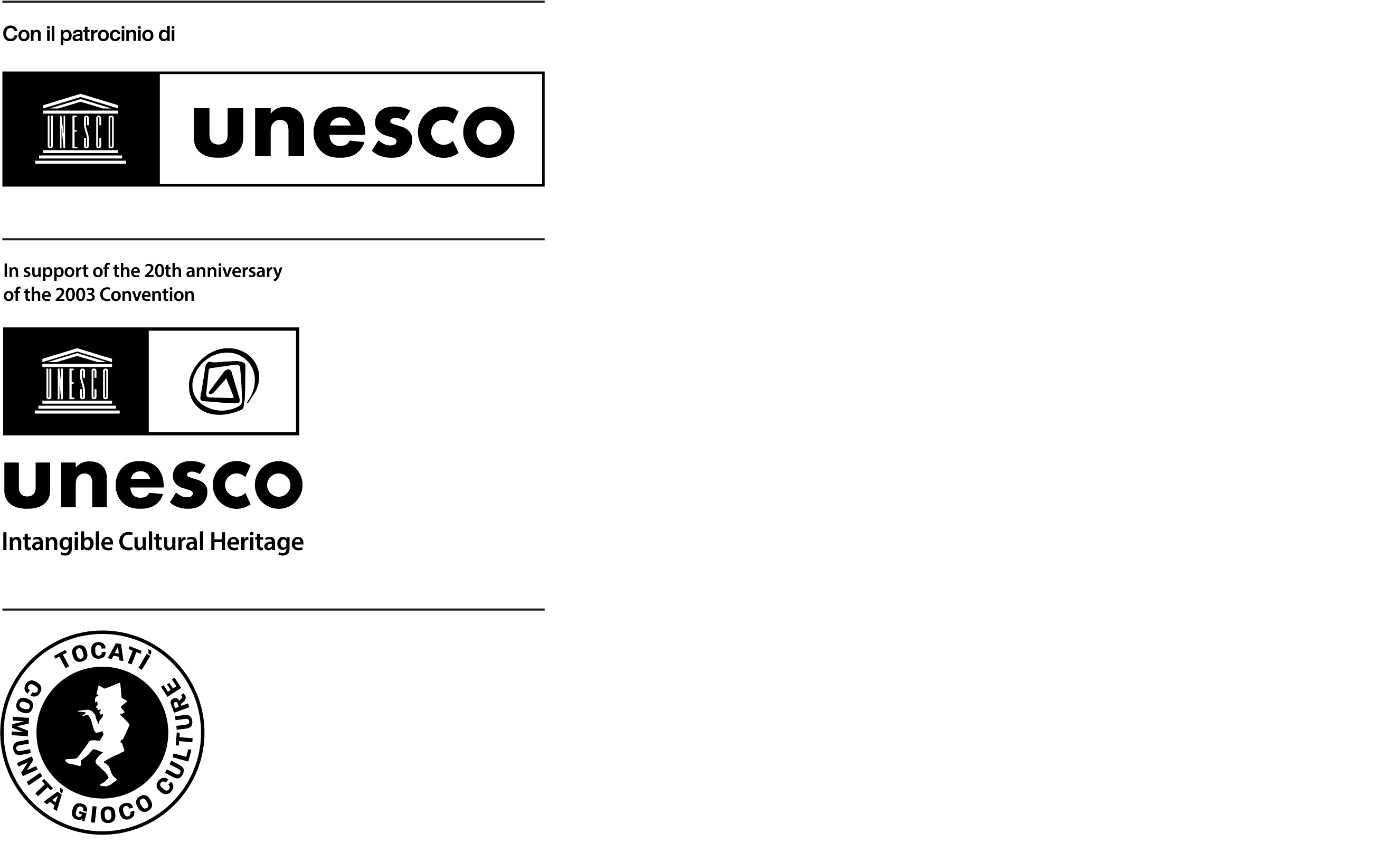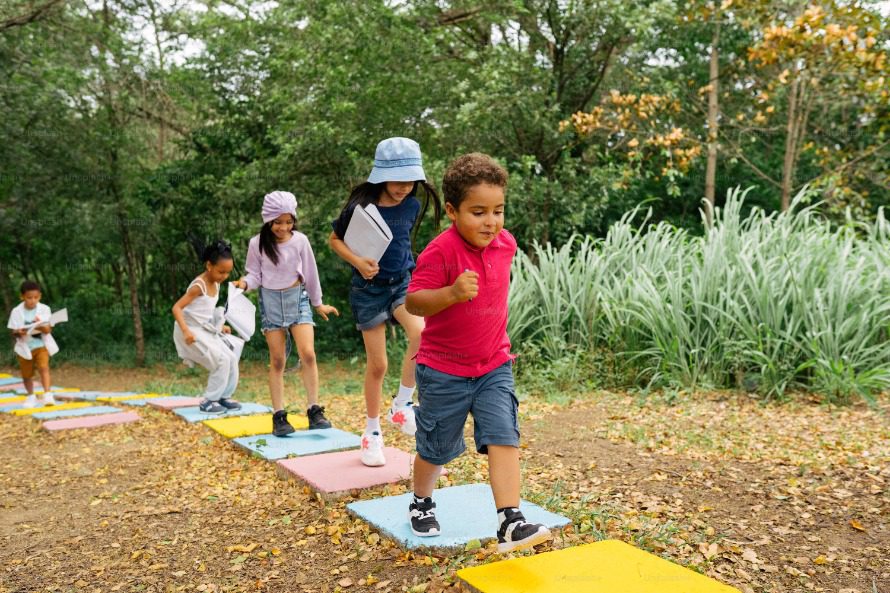TOCATÌ GOOD PRACTICE FOR SAFEGUARDING UNESCO IMMATERIAL CULTURAL HERITAGE

Why UNESCO?
The United Nations Educational, Scientific and Cultural Organization is an expression of the desire for redemption from the rubble of two world wars. Here are the first words of its 1945 Constitution:
“Wars begin in the minds of men, and it is in the minds of men that the defenses of peace must be built, since mutual misunderstanding between peoples has always been, throughout history, the source of suspicion and distrust. The dignity of man demands the diffusion of culture and education”.
The Organization’s main vocation is international coordination and cooperation in education, science, culture and communication. Its fundamental objectives consist of strengthening the links between nations, societies, communities, groups and individuals, in order to create a favorable environment so that every citizen can:
☞ have access to quality education, a fundamental right and an indispensable condition for sustainable development;
☞ grow and live in a cultural environment rich in diversity, dialogue, in which heritage serves as a union between generations and peoples;
☞ fully benefit from the progress of knowledge and science;
☞ enjoy full freedom of expression, the basis of democracy, development and human dignity.
Traditional Games and Sports, in line with the UNESCO spirit, have always promoted encounters, the peaceful coexistence of diversity and freedom of expression. As an intangible cultural heritage, it is a strong expression of the territory it inhabits and of the knowledge inextricably linked to it: playing together means welcoming and experiencing all of this.
What is Intangible Cultural Heritage?
The 2003 UNESCO Convention for the Safeguarding of the Intangible Cultural Heritage, ratified by Italy in 2007, defines intangible cultural heritage as follows:
“Intangible cultural heritage” means the practices, representations, expressions, knowledge, know-how – as well as the instruments, objects, artefacts and cultural spaces associated therewith – that communities, groups and in some cases individuals – recognize as part of their cultural heritage. This intangible cultural heritage, transmitted from generation to generation, is constantly recreated by communities and groups in response to their environment, their interaction with nature and their history and gives them a sense of identity and continuity, thereby promoting respect for cultural diversity and human creativity. For the purposes of this Convention, such intangible cultural heritage shall be taken into account only to the extent that it is compatible with existing human rights instruments and the requirements of mutual respect between communities, groups and individuals and of sustainable development.” (Art.2)
According to the Convention, communities, groups and individuals who are bearers of knowledge, practices and skills are the primary protagonists in the process of cultural production and transmission.
The story of AGA and the Tocatì festival takes on exemplary importance in light of this scenario. From a group of players organized in a cultural association, a movement is born that wants to regenerate the relationship with the city and with the territories as places of belonging. The association addresses local policies, negotiates the conditions to make concrete the will to continue playing, with and for the city. AGA then connects with other communities, plans a Festival, the main action of the Tocatì program recognized as Good Practice by UNESCO in Rabat, Morocco, in December 2022, and activates international networks. The great journey of heritage in the global world has many stories to tell. The story of Tocatì is one of them.

But what does it mean to be a Good Practice?
It means that Tocatì is committed to sharing its experiences with others, making its path a source of inspiration. Tocatì becomes an activator of new paths of protection and revitalization of living heritage, promoting sharing, creativity and well-being of communities, groups and individuals.
Tocatì has been recognized as a Good Practice by UNESCO because it puts practicing communities at the centre, who are also at the helm of the program: connecting traditional games and sports to the values of intangible cultural heritage and the richness of the many cultural expressions associated with the game.
The Tocatì Festival but also the many events of the Tocatì network, taking place in the streets and making highly urbanized and tourist areas spaces of inclusion and equality, also increases awareness of the existence of intangible cultural heritage and its value.
The five main objectives of the Tocatì program are:
(a) strengthen a common ground of exchange between practitioners and institutions;
(b) establish a process for the identification, documentation and participatory monitoring of traditional games and sports;
(c) improve the transmission of traditional games and sports in formal and non-formal education;
(d) empower and protect communities and increase their capacity to ensure access to and manage public spaces; and
(e) engage communities, groups, individuals, institutions and other stakeholders in innovative capacity-building initiatives.
These objectives were identified through consultations and meetings with communities at local, national and international levels and have shaped Tocatì in a dynamic way, contributing to the growing participation and reach of the programme.